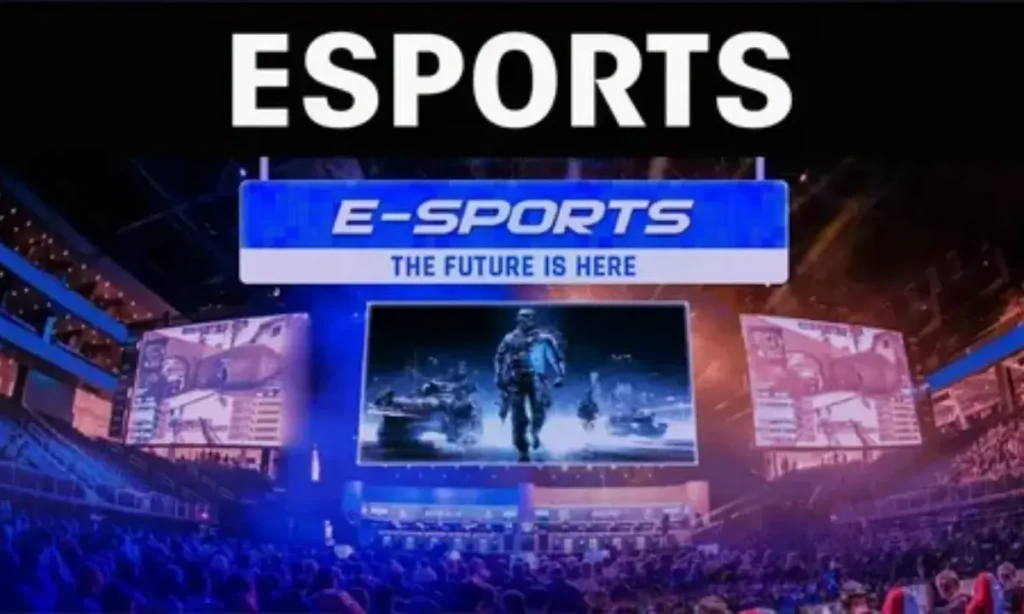The world of esports has evolved at lightning speed. What started as small LAN tournaments among gaming enthusiasts has grown into a multibillion-dollar global industry rivaling traditional sports. Yet, while gameplay, production value, and prize pools have scaled dramatically, esports media coverage often lags behind. That’s where Esports News DualMedia steps in—a transformative hybrid model designed to meet the fast-paced, community-driven, and creator-led nature of modern gaming audiences.
This guide explores how DualMedia is reshaping competitive gaming journalism through technology, engagement, and a deep understanding of gamer culture.
Table of Contents
The Rise of Esports and the Demand for Dynamic Media
The esports industry has become a global entertainment powerhouse. In 2025, it’s projected to surpass $2 billion in annual revenue, with an audience exceeding 640 million fans worldwide. Platforms like Twitch, YouTube Gaming, and TikTok Live host millions of hours of live gameplay and commentary every day.
But as esports grew, traditional coverage failed to keep pace. Conventional journalism—built around next-day match reports or long-form analysis—simply couldn’t match the speed and interactivity modern audiences expect.
Why Dynamic Media Matters
Dynamic, real-time storytelling has replaced static articles. Viewers want to:
- Watch highlights instantly, not hours later.
- Engage in live discussions with casters and fans.
- Access insights across multiple platforms without repetition.
This shift has given rise to the DualMedia model—an evolution of media that adapts to gamer behavior and attention patterns.
Shifting Audience Expectations
Esports audiences are younger, mobile-first, and digitally native. They consume content across multiple screens and platforms simultaneously. This audience doesn’t wait for a morning recap—they expect updates as plays happen.
Key Shifts in Audience Behavior
| Behavior | Traditional Esports Coverage | DualMedia Approach |
|---|---|---|
| Content Timing | Delayed post-match reports | Real-time clips and commentary |
| Interaction | One-way reporting | Two-way community dialogue |
| Platform Usage | Single-platform articles | Cross-platform storytelling |
| Personalization | Generic team focus | Creator-driven narratives |
A study from Newzoo found that 72% of esports viewers prefer real-time updates and peer commentary over formal news articles. In short, they crave authenticity and immediacy—and DualMedia delivers both.
What Is Esports News DualMedia?
Esports News DualMedia is not just a media strategy—it’s a new architecture of esports storytelling. It blends the depth of professional journalism with the speed and authenticity of creator content.
At its core, DualMedia integrates:
- Editorial credibility from traditional reporting.
- Creator-led storytelling that resonates with audiences.
- AI-driven automation for faster and smarter coverage.
- Community participation that fuels engagement.
Think of it as a hybrid newsroom, where data analysts, content creators, and fans collaborate to produce evolving narratives around esports events.
Key Features of DualMedia
The DualMedia model stands out because it redefines how coverage is produced, distributed, and consumed.
Real-Time Narrative Layering
Instead of separating “live coverage” from “post-match analysis,” DualMedia merges both into one continuous feed. Fans can follow a tournament in real time, with dynamic updates and commentary embedded within a single evolving storyline.
Audience-Injected Context
Viewers don’t just consume; they shape the narrative. Polls, fan chat insights, and community reactions are incorporated into live reporting. This turns esports journalism into a two-way conversation, not a broadcast monologue.
Short-Form and Long-Form Synergy
Rather than replacing one with the other, DualMedia connects snackable clips with deep analysis. A highlight reel leads seamlessly into a detailed tactical breakdown, catering to every type of viewer—from casual fan to competitive analyst.
DualMedia vs Traditional Esports Coverage
The contrast between traditional esports coverage and DualMedia journalism highlights why this model is dominating the future.
Comparison of Approaches
| Aspect | Traditional Coverage | DualMedia Coverage |
|---|---|---|
| Format | Static articles, delayed uploads | Continuous, evolving coverage |
| Voice | Corporate and formal | Creator-driven, conversational |
| Speed | Post-event summaries | Instant updates, real-time analysis |
| Engagement | Passive reading | Interactive participation |
| Tools | Manual reporting | AI automation and analytics |
Engagement Levels
DualMedia content typically enjoys 2–3x higher engagement than traditional esports media. Viewers who interact with live polls, AI-curated highlights, or creator commentary spend more time watching and sharing content—boosting retention and brand loyalty.
Components of the Esports News DualMedia Model
Multi-Platform Content Strategy
DualMedia’s strength lies in smart distribution. Each platform has a role:
- TikTok / Instagram Reels: Micro-highlights and fast takes.
- YouTube: In-depth breakdowns and interviews.
- Twitch / Kick: Live commentary and community engagement.
- Discord / Reddit: Discussion threads and viewer polls.
- Substack: Extended editorials and newsletters.
This multi-platform strategy ensures maximum reach while maintaining consistency in tone and quality.
Real-Time Reporting and Reactions
Speed defines esports coverage. Using AI-powered systems, DualMedia can generate instant match summaries, pull key statistics, and even detect emerging trends—such as a sudden spike in player mentions or controversy mid-broadcast.
Fans no longer wait for post-event write-ups. Real-time commentary and automated highlight reels deliver immediate gratification, keeping attention high during live matches.
Creator-Led Journalism
In the DualMedia ecosystem, creators are the new anchors. Esports influencers, analysts, and former pros become trusted voices who offer expert takes and relatable commentary.
Advantages of creator-led journalism:
- Builds stronger parasocial trust between fans and content hosts.
- Humanizes reporting with authentic voice and humor.
- Drives higher audience loyalty and repeat engagement.
For example, when VALORANT streamers co-hosted segments during major tournaments, live viewership increased by over 30% compared to brand-only broadcasts.
AI and Automation Integration
Artificial intelligence is the backbone of the DualMedia infrastructure. It enhances both speed and quality of esports reporting.
Core AI functions in DualMedia:
- Highlight detection: Instantly identifies key plays.
- Sentiment analysis: Gauges fan reactions in real-time.
- Automated captions: Improves accessibility.
- Predictive analytics: Anticipates trending topics before they peak.
These technologies allow editors and creators to focus on storytelling while AI handles the technical and repetitive tasks.
The Role of Community in Esports News DualMedia
Community Engagement
Community-driven ecosystems like Discord, Reddit, and X (Twitter) form the lifeblood of DualMedia. Coverage is shaped with the audience, not just for them.
Fans can submit clips, fact-check data, or vote on discussion topics, creating a participatory layer of journalism that evolves organically with the community’s voice.
Building Trust
Transparency builds credibility. In DualMedia, errors or corrections are handled in public view, strengthening audience confidence. Live comment sections, community moderation, and open editorial logs all contribute to a trust-first model rarely seen in traditional esports reporting.
The Business Behind Esports News DualMedia
Monetization Strategies
DualMedia opens new revenue pathways that combine media economics with creator monetization.
Primary streams include:
- Branded sponsorships (integrated content and overlays)
- Live donations and Super Chats
- NFT-based collectibles (highlight ownership tokens)
- Subscription tiers for premium analytics and insider access
- Affiliate marketing tied to gaming gear and streaming tools
DualMedia creators can earn revenue across multiple channels without relying solely on ad impressions.
Partnerships and Collaborations
The model thrives on strategic alliances. Esports teams, tournament organizers, and brands collaborate to co-create mutually beneficial content.
Examples:
- League partnerships: Exclusive post-match interviews or co-stream rights.
- Brand integrations: Product placements during live commentary.
- Cross-media collaborations: Streamer and journalist hybrid segments.
This ecosystem approach blurs the line between journalism, entertainment, and marketing—while maintaining transparency with the audience.
Case Study: DualMedia in Action
Real-World Example — Valorant Champions
During the VALORANT Champions Tour (VCT), Riot Games tested a DualMedia-style approach that combined live gameplay with influencer commentary and AI-powered highlight automation.
Results:
- Viewer engagement rose by 47%.
- Average watch time increased to 38 minutes (up from 22).
- Social media interactions doubled during key matches.
Impact Assessment
This experiment demonstrated that creator-led, data-enhanced coverage drives better viewer retention, social reach, and monetization potential compared to traditional esports reporting.
Challenges in the Esports News DualMedia Landscape
Despite its success, the model faces critical challenges that demand constant innovation.
Evolving Technology
AI, VR, and AR tools change rapidly. Keeping up with hardware and algorithmic improvements requires continuous reinvestment and training.
Content Saturation
As more creators join, signal-to-noise ratio drops. Ensuring quality storytelling amidst a flood of clips and reactions is a constant battle.
Maintaining Quality
Speed must never sacrifice credibility. Editorial oversight, fact-checking, and context remain vital even in a hyper-fast environment.
Why Esports News DualMedia Is the Future
Esports News DualMedia embodies the next phase of digital media evolution. It’s faster, smarter, and more human.
Why it’s the future:
- Aligns with Gen Z and Alpha consumption habits.
- Encourages community ownership of content.
- Leverages AI tools to scale production and personalization.
- Balances authenticity with professionalism—a combination traditional outlets struggle to achieve.
In essence, it’s a fusion of journalism and fandom, powered by innovation.
Future Trends in Esports Coverage
Looking ahead, expect these emerging trends to shape DualMedia’s continued rise:
- AI-generated secondary commentary for on-demand highlights.
- Augmented reality (AR) overlays enhancing live viewing.
- Tokenized fan rewards tied to engagement levels.
- Community-curated editorial priorities, where fans vote on story angles.
- Decentralized esports news platforms powered by blockchain for transparency.
These technologies will deepen immersion and give fans more influence than ever before.
Call to Action for Creators
For content creators, now is the time to embrace DualMedia principles.
Start small:
- Use cross-platform scheduling tools.
- Integrate chat reactions into analysis streams.
- Experiment with short + long-form hybrid content.
Essential skills to master:
- Live storytelling and analytical commentary.
- Basic video editing and real-time data visualization.
- Understanding of audience psychology and engagement metrics.
Creators who adopt these strategies will not just report esports—they’ll shape its narrative.
Final Thoughts
Esports News DualMedia represents more than a media format—it’s a movement. It merges the thrill of live gaming with the intelligence of modern journalism, creating a bridge between fans, creators, and the industry itself.
As technology advances, those who adapt to this hybrid approach will lead the next era of esports storytelling—where every click, clip, and comment builds a more connected, authentic, and immersive competitive gaming world.
FAQs
Q1: What makes Esports News DualMedia different from traditional journalism?
DualMedia integrates real-time reporting, creator-led storytelling, and AI automation to deliver continuous, interactive coverage rather than static articles.
Q2: Which platforms best support DualMedia strategies?
Twitch, YouTube, TikTok, Discord, and Substack offer the ideal combination of live interaction, discoverability, and monetization.
Q3: How does AI enhance esports news coverage?
AI automates highlight clipping, detects trends, and analyzes sentiment—allowing faster, more accurate updates without sacrificing context.
Q4: Can small creators adopt the DualMedia model?
Yes. Even with limited resources, creators can implement cross-platform strategies, live audience engagement, and data-driven storytelling tools.
Q5: What’s the biggest challenge ahead for DualMedia?
Balancing authenticity, speed, and journalistic integrity in an increasingly saturated and fast-moving content ecosystem.



